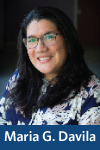Back in 2004, before I started working for the Emory University IRB, I was working as a research coordinator in the Department of Orthopaedics. As a research coordinator in this department, I was deeply involved in research involving devices. The devices we used, as you might guess, were intramedullary nails, rods, sutures and other devices that had the goal of promoting soft tissue and bone healing.
Since I started working for the Emory University IRB in 2010, we have seen an increase of studies using software and medical apps. The uses of the software can vary greatly: it might be used to monitor sleep, physical activity, diet, or mental health, among many other uses. The application of device regulation was quite confusing when studies using these apps started pouring into our IRB and others around the country. This is why it was so important to receive guidance from the FDA about the use of mobile medical apps in research.
When the guidance was revised in 2015, there was a lot of excitement in our office; we wanted to ensure that we were not overly strict but at the same time remain complaint with FDA regulations. For example, we were unsure if the software used to collect health data (such as exercise or dietary information) needed to be reviewed at a full board meeting given the requirement of a device determination. It was great to learn that the FDA was planning to exercise enforcement discretion in such devices, as long as they were not a “device [that] claims [to be] unrelated to the diagnosis, cure, mitigation, prevention, or treatment of a disease or condition.”
After the 21st Century Cures Act was signed into law on December 13, 2016, the guidance changed once again, and some of the medical apps considered as devices were no longer seen as such. Using the same example of a software that collects exercise or dietary information, the same app that was under enforcement discretion under the 2015 revised guidance was no longer being considered a device under the Section 3060 (a) of the Cures Act.
That is why I thought that continuing the discussion at the 2019 Advancing Ethical Research Conference (AER19) (Investigational Device Exemptions (IDE) Mobile Medical Applications and IRB Review) was of great use to IRB professionals. It is important to keep hearing what devices are the focus of oversight given how hard it can be to apply the regulations with certainty across vastly different studies, despite the extensive examples from the guidance released by the FDA. Discussion, with case examples, can be even more useful for IRB professionals in exploring how best to apply the guidance. Institutions like ours have a lot of investigators eager to use the latest technology for research, and we have an obligation to keep up with them and their studies. A lot of work and effort is being placed on IRBs to ensure that we keep up with the technology, and it is not always easy. I think that more discussions such as the one at AER19 could help with these efforts.
Maria G. Davila MD, CCRC, MA (Bioethics), is the Associate Director for Emory University IRB. She joined the IRB in August 2010. Maria is the team leader of the QA and Education team, which is in charge of auditing Emory IRB approve research studies and reviewing reportable events applications. Her team is responsible for providing federal regulations and P&P education to the Emory research community, IRB Staff, and IRB members. Under Maria’s leadership, the IRB Education and QA team have developed several guidance documents and worksheets and started educational, monthly webinars to provide up-to-date information to the Emory research community.
Before joining the IRB, she worked as a research associate for the Department of Orthopaedics for six years. During this time, Maria worked in a diverse range of studies, going from minimal risk studies up to Phase I research trials; helped with the development of quality assurance procedures for their research projects; and was the microsurgery instructor for residents and fellows. Maria has a foreign medical degree from Ecuador and a Master’s in Bioethics at Emory University.
Members of PRIM&R’s Blog Squad and other guest contributors are valued members of our community willing to share their insights. The views expressed in their posts do not necessarily reflect those of PRIM&R or its employees.
PRIM&R’s 2020 Advancing Ethical Research Conference (AER20) will take place virtually. We will present AER20 as a series of shorter, half-day online events spread out over three weeks in December (December 1-2, December 8-9, December 15-16).


No comments! Be the first commenter?